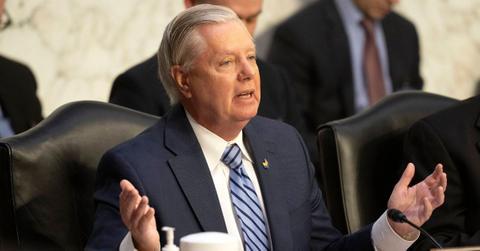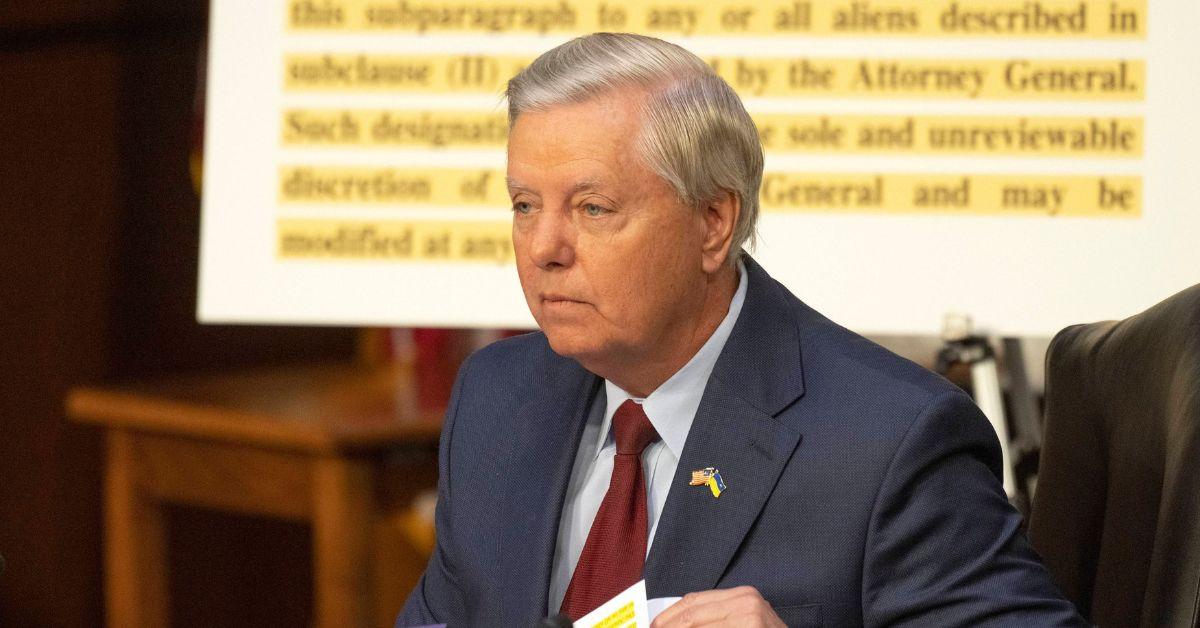Supreme Court REJECTS Senator Lindsey Graham's Request To Block Georgia Grand Jury Subpoena Regarding Alleged Efforts To Overturn 2020 Election

Nov. 1 2022, Published 3:25 p.m. ET
Senator Lindsey Graham’s request to be blocked from testifying before a Georgia grand jury was officially rejected this week by the Supreme Court, RadarOnline.com can confirm.
The Supreme Court officially declined to block Graham's subpoena on Tuesday, meaning the 67-year-old embattled GOP senator must appear before an Atlanta grand jury on November 17.

According to CNN, Graham was initially subpoenaed and ordered to testify in connection to an ongoing investigation regarding his alleged efforts to help overturn the 2020 presidential election in Georgia in favor of then-candidate Donald Trump.
The senator then filed an emergency request asking SCOTUS to block his testimony, but the Supreme Court has now agreed with the lower courts that ruled Graham must testify.
“Accordingly,” the Supreme Court said after declining Graham’s request, “a stay or injunction is not necessary to safeguard the Senator’s speech or debate clause immunity.”
Although Graham has been ordered to testify, it was also ruled that he “could not be asked to talk specifically about issues related to his legislative role” as a United States senator.

The South Carolina senator previously argued that he could not be forced to testify due to his protection under the U.S. Constitution’s Speech or Debate clause, which protects the nation’s lawmakers from both criminal and civil proceedings connected to their legislative duties.
The Supreme Court’s decision on Tuesday came as a victory for Fulton County, Georgia District Attorney Fani Willis.
Willis’ office has been leading the investigation into a series of alleged phone calls Graham made to Georgia election officials when then-President Trump was contesting the results of the state’s election after then-candidate Joe Biden won the state.
According to Graham, the phone calls he made to Georgia election officials after the 2020 presidential election were part of his duties in certifying the election results. Therefore, he argued he should not be forced to testify regarding the matter.


Although Graham is now forced to comply with the subpoena, and will be forced to testify under oath on November 17, the senator still maintains his right to avoid self-incrimination under the Fifth Amendment.
The Atlanta grand jury is also reportedly set to focus on claims Graham “made references to allegations of widespread voter fraud” that were “consistent with public statements made by known affiliates of the Trump campaign.”
Powered by RedCircle



